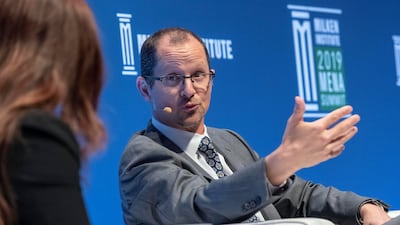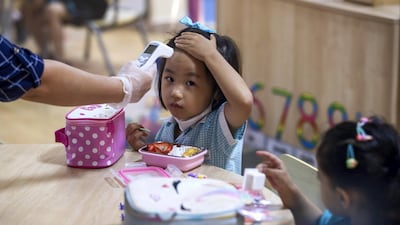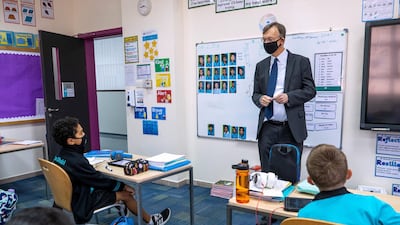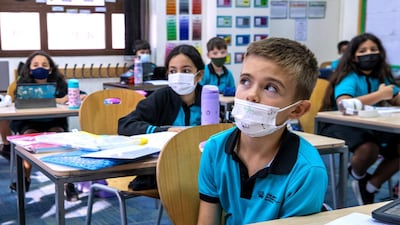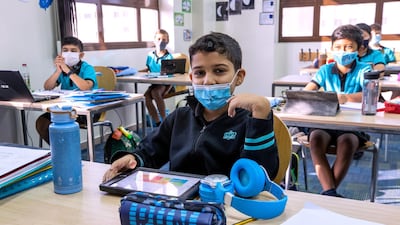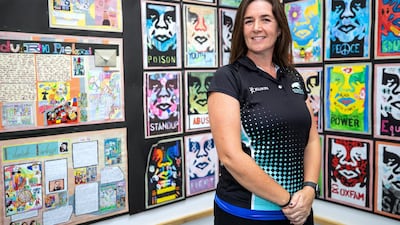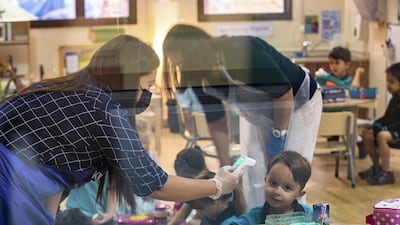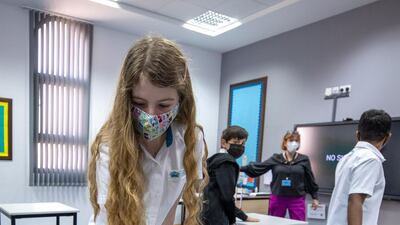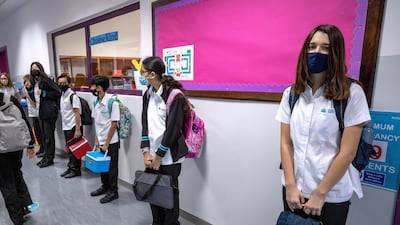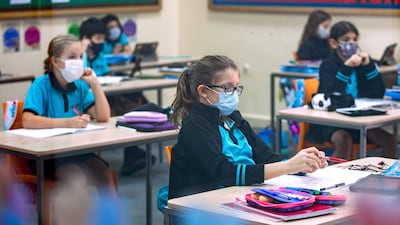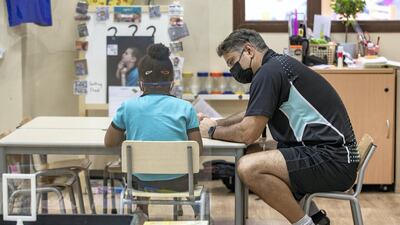Schools are on the fast track to developing the cutting-edge classrooms of the future as they turn to technology and overhaul teaching models to boost learning.
Traditional teaching methods were disrupted by the rise of the Covid-19 pandemic, with the education sector quickly adapting to remote learning to ensure pupils did not miss out on essential learning.
A shift towards hi-tech education may have been hastened by the pandemic but it is here to stay as a new education landscape emerges.
Syllabuses will be gamified and classes will soon be immersive with pupils experiencing what they study through the use of augmented or virtual reality, say experts.
Gamification marries traditional teaching techniques with elements of the gaming experience in an effort to improve engagement.
Some schools have already started making these changes. In 2021, Gems Metropole School in Dubai brought augmented reality into the classroom, using advanced digital tools to allow for a greater understanding of the world.
Augmented reality uses a hand-held device such as an ipad to project an image — anything from a beating heart to a wild animal or a planet — into the real-world environment to bring education to life.
The National has taken a closer look at some of the education trends coming to a school near you.
Hybrid learning
Hybrid or blended learning came to prominence in the Covid-19 pandemic as some pupils studied in classrooms while others joined in remotely.
Experts predict this is one trend that is not going away soon.
“I'd say that one really big trend is hybrid learning,” said Jeff Maggioncalda, chief executive of US-based online learning platform Coursera.
“I think hybrid really is going to be the future because that's what it will take to keep up with a faster changing world.”
Mr Maggioncalda pointed out there were many dimensions of hybrid education.
“I think there's another (version of) hybrid between universities and industry where universities will collaborate with industry to bring in the curriculum and have more industry-relevant content,” he said.
“There's another type of hybrid, which is hybrid credentials. We are now seeing universities build micro-credentials into their degree programmes so that when you graduate, you get both a college degree and a professional certificate.”
Adam El Rafey, 11, an education reform champion who has been selected to be among the world's top 25 young pioneers and innovators this month, believes the hybrid model will continue to grow.
“In my eyes, schools in 10 years will have a hybrid model, some of it will be in person and some of it could be online,” he said.
“There should be immersive learning as we could use that for the benefit of engaging pupils.”
He also said subjects would not be separated but taught as interdisciplinary courses.
“In life, subjects aren't separated in boxes, they come in all shapes and forms with each other to make things like biology, chemistry, and medicine,” he said.
Gamification of curriculum
Gamification to keep pupils focused isn’t new to learning but is a key trend that will continue to grow in popularity, say experts.
Games such as Classcraft, which allows pupils to create a character and work with classmates to earn special powers, and Kahoot!, which lets them create multiple-choice quizzes, have become popular in schools all over the world.
The child isn’t limited to having to read a textbook and games help capture their imagination in many different ways.
“The very real issue of reduced concentration spans for our young people will also become more highlighted,” said Dr Colin Kennedy, head of education and senior innovation specialist at Creative HQ in New Zealand, a provider of innovation programmes for start-ups, corporates and government.
“More 'consumable', shorter learning chunks will be more common, as will the gamification of delivery to create and sustain motivation and interest.”
Personalised learning
Adam El Rafey said schools needed to do more to integrate a personalised approach as children learn in different ways.
He said it should be based on each child’s learning style. While some pupils may learn through working on projects, others may enjoy working with people and learn through interactions.
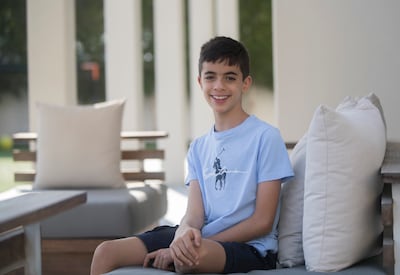
Dr Colin Kennedy agreed that tailored teaching could reap rewards.
“A trend we can expect to see evolve further is around the individualisation of education,” he said.
“Contextual and purpose-led content will become much more prevalent and I would hope it will often be student generated.
“Learning has always been more powerful when it is holistic (meaningful to the head and heart) and the digitalisation of education creates an opportunity for student-led content.”
Some schools in the UAE have taken steps towards individualised learning.
At The Indian High School in Dubai 1,200 Grade 11-12 pupils have received day and a half off every week to pursue hobbies since April 2019.
The Dubai Knowledge and Human Development Authority's Rahhal initiative aims to provide a creative and innovative alternative to mainstream education. It allows pupils to study at more than one school, or part time, while spending the rest of their time developing the skills they are most interested in.
Job-relevant education
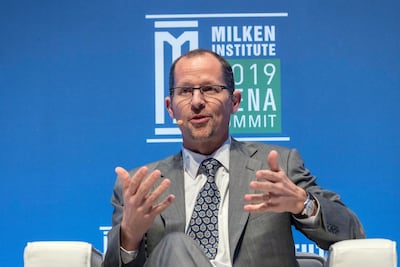
Student-employability is a key trend said experts. Pupils want to work on projects which have real-world relevance and are keen on pursuing subjects that will prepare them for jobs of the future.
“A big trend is a focus on student employability. Many universities are using Coursera to bring our industry courses into the classroom,” said Mr Maggioncalda.
“What does it take for students to be employable? A lot of it is understanding what jobs are in high demand, and what skills are needed to do those jobs. Then, of course, you need the ability to train those skills.
“I think universities in higher education, also vocational schools are going to be spending more time (working on this).
“I do think that job relevant education is a big trend.”
Adam El Rafey said pupils like him wanted to work on global projects with real-world impact at stake.
He said pupils wanted to work with companies on projects to change the world for the better.
